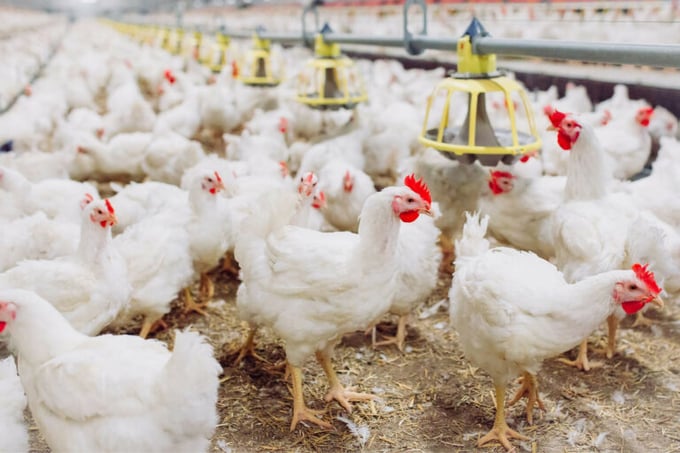May 20, 2025 | 23:57 GMT +7
May 20, 2025 | 23:57 GMT +7
Hotline: 0913.378.918
May 20, 2025 | 23:57 GMT +7
Hotline: 0913.378.918

Black soldier fly larvae are known for their ability to promote natural poultry behaviour and are a nutrient-rich, high-quality protein source. Photo: Canva.
The ‘FeedFlow’ project is being led by insect farming innovator Flybox and is funded by Innovate UK as part of Defra’s Farming Innovation Programme.
Although the UK poultry industry has seen significant advancements in production sustainability through genetic selection, it faces persistent issues including poor leg health, high mortality rates and variable feed conversion rates, as well as contributing the ammonia emissions.
To address these issues and stay competitive against low-cost imports, UK poultry production systems need to evolve continuously. Black soldier fly larvae are renowned for their ability to promote natural poultry behaviour and are a nutrient-rich, high-quality protein source enhanced with antimicrobial peptides.
Artificial intelligence systems, meanwhile, propel precision agriculture by delivering real-time data on flock welfare and early warnings of potential issues. The FeedFlow project harnesses these technologies with a cutting edge rapid intervention system. It integrates FLOX360, an in-demand computer vision platform powered by enterprise-grade AI algorithms.
In addition, the project incorporates Life Cycle Analysis, which is being led by Jess Callagham from the University of Chester, to assess Global Warming Potential. Flybox is also working with Nottingham Trent University’s School of Animal, Rural and Environmental Sciences, which will look at how fortified BSF larvae could deliver a rapid nutrient boost that addresses health challenges more effectively than traditional feed interventions.
Emily Burton, a professor in sustainable food production at Nottingham Trent University, said: “Insects are an essential part of our transition from linear to circular resource use, and project like this are accelerating insect production to commercial viability by thinking outside the box about how we can harness them to improve poultry production.”
Last year, Flybox and Nottingham Trent University embarked on a study to feed black soldier fly larvae food waste – nutritionally-enhanced using nanometre sized natural minerals – before being added to poultry feed. The work is part of a feasibility study which aims to increase the nutritional value of chickens and significantly reduce the carbon footprint of ingredients.
(Poultryworld)

(VAN) Attempts to bring down the price of the Japanese staple have had little effect amid a cost-of-living crisis.

(VAN) Fourth most important food crop in peril as Latin America and Caribbean suffer from slow-onset climate disaster.

(VAN) Shifting market dynamics and the noise around new legislation has propelled Trouw Nutrition’s research around early life nutrition in poultry. Today, it continues to be a key area of research.

(VAN) India is concerned about its food security and the livelihoods of its farmers if more US food imports are allowed.

(VAN) FAO's Director-General emphasises the need to work together to transform agrifood systems.

(VAN) Europe is facing its worst outbreak of foot-and-mouth since the start of the century.

(VAN) The central authorities, in early April, released a 10-year plan for rural vitalization.